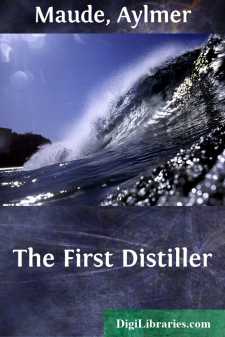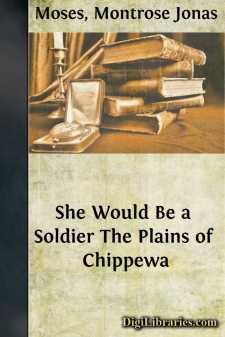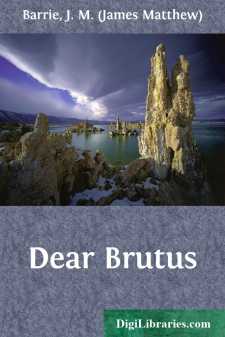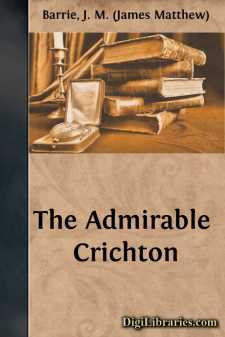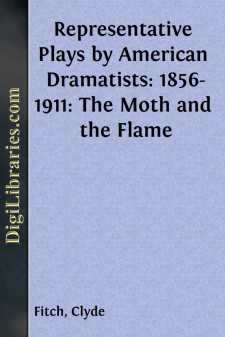Drama Books
Sort by:
by:
Aylmer Maude
ACT I PEASANT [ploughing. Looks up] It's noon. Time to unharness. Gee up, get along! Fagged out? Poor old beast! One more turn and back again, that will be the last furrow, and then dinner. It was a good idea to bring that chunk of bread with me. I'll not go home, but sit down by the well and have a bite and a rest, and Peggy can graze awhile. Then, with God's help, to work again, and...
more...
MORDECAI MANUEL NOAH (1785-1851) Mr. Noah was born in Philadelphia, July 19, 1785, the son of Portuguese Jewish descent, it being stated by some sources that his father not only fought in the Revolutionary Army, but was a sufficient friend of George Washington to have the latter attend his wedding. In his early years, he was apprenticed, according to the custom of the day, to a carver and gilder, but...
more...
by:
Edwin Bjorkman
INTRODUCTION Hermann Bahr, the noted playwright and critic, tried one day to explain the spirit of certain Viennese architecture to a German friend, who persisted in saying: "Yes, yes, but always there remains something that I find curiously foreign." At that moment an old-fashioned Spanish state carriage was coming along the street, probably on its way to or from the imperial palace. The...
more...
by:
John Galsworthy
ACT I SCENE I The curtain rises on the BARTHWICK'S dining-room, large, modern, and well furnished; the window curtains drawn. Electric light is burning. On the large round dining-table is set out a tray with whisky, a syphon, and a silver cigarette-box. It is past midnight. A fumbling is heard outside the door. It is opened suddenly; JACK BARTHWICK seems to fall into the room. He stands holding by...
more...
ACT I The scene is a darkened room, which the curtain reveals so stealthily that if there was a mouse on the stage it is there still. Our object is to catch our two chief characters unawares; they are Darkness and Light. The room is so obscure as to be invisible, but at the back of the obscurity are French windows, through which is seen Lob's garden bathed in moon-shine. The Darkness and Light,...
more...
On July 1, 1776, the Continental Congress of the American Colonies faced one of the most important crises this country has ever passed through. Upon what happened that night depended the fate of the resolution before Congress which declared that: "These United Colonies are, and of right ought to be, free and independent States, that they are absolved from all allegiance to the British Crown, and...
more...
by:
Henrik Ibsen
PLAY IN FOUR ACTS. ACT FIRST. (A rocky coast, running precipitously down to the sea at the back. To the left, a boat-house; to the right, rocks and pine-woods. The masts of two war-ships can be seen down in the cove. Far out to the right, the ocean, dotted with reefs and rocky islands; the sea is running high; it is a stormy snow-grey winter day.) (SIGURD comes up from the ships; he is clad in a white...
more...
ACT I. AT LOAM HOUSE, MAYFAIR A moment before the curtain rises, the Hon. Ernest Woolley drives up to the door of Loam House in Mayfair. There is a happy smile on his pleasant, insignificant face, and this presumably means that he is thinking of himself. He is too busy over nothing, this man about town, to be always thinking of himself, but, on the other hand, he almost never thinks of any other...
more...
INTRODUCTION It must have been on Synge's second visit to the Aran Islands that he had the experience out of which was wrought what many believe to be his greatest play. The scene of "Riders to the Sea" is laid in a cottage on Inishmaan, the middle and most interesting island of the Aran group. While Synge was on Inishmaan, the story came to him of a man whose body had been washed up on...
more...
by:
Clyde Fitch
CLYDE FITCH (1865-1909) Clyde Fitch brought a vivacity to the American stage that no other American playwright has thus far succeeded in emulating. The total impression of his work leads one to believe that he also brought to the American stage a style which was at the same time literary and distinctly his own. His personality was interesting and lovable, quickly responsive to a variety of human...
more...


